Science News: Recent scientific discoveries and expert analysis
Read the latest science news and recent scientific discoveries on Live Science, where we've been reporting on groundbreaking advances for over 20 years. Our expert editors, writers and contributors are ready to guide you through today's most important breakthroughs in science with expert analysis, in-depth explainers and interesting articles, covering everything from space, technology, health, animals, planet Earth, and much more.

Explainers | Everything you need to know about the science news that matters.

Science Spotlight | Shining a light on new science transforming our world.
Latest news

MIT designs computing component that uses waste heat 'as a form of information'
By Owen Hughes published
Proof of concept uses passive components to redirect heat across a chip, allowing temperature patterns to be used for data processing.
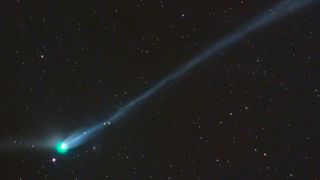
Newly visible, city-size 'green comet' will soon be ejected into interstellar space — just like 3I/ATLAS
By Harry Baker published
Comet Wierzchoś, also known as C/2024 E1, is rapidly brightening as it approaches its closest point to Earth next week. But experts predict it will eventually be thrown out of the solar system forever, just like the "alien" comet 3I/ATLAS.

'It's telling us there's something big going on': Unprecedented spike in atmospheric methane during the COVID-19 pandemic has a troubling explanation
By Victoria Atkinson published
During the COVID-19 pandemic, the atmosphere temporarily lost its ability to break down methane, leading to a huge spike in the greenhouse gas.

Record-breaking gravitational wave puts Einstein's relativity to its toughest test yet — and proves him right again
By Sharmila Kuthunur published
A record-breaking gravitational wave signal let scientists "listen" to a distant black hole merger and put Einstein's gravity to its toughest test yet.
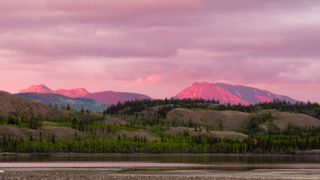
Canada could remove 5 times its annual carbon emissions by planting trees on edge of boreal forest, study finds
By Brian Owens published
Planting trees on 6.4 million hectares of northern taiga forest could remove 3.9 gigatons of CO2 by 2100 — five times Canada's annual emissions.
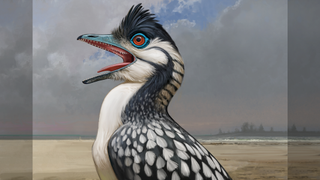
Archaeopteryx, one of the world's first proto birds, has a set of weird, never-before-seen features, new study reveals
By Aristos Georgiou published
Iconic transition species between dinosaurs and birds may have had weird 'teeth' on roof of its mouth and a highly mobile tongue, study reveals
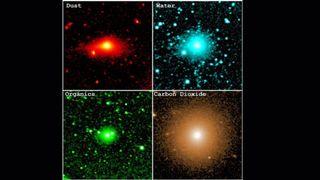
NASA telescope spots the building blocks for life spewing out of comet 3I/ATLAS
By Patrick Pester published
NASA's SPHEREx space telescope detected organic molecules coming off comet 3I/ATLAS as the interstellar visitor made its closest approach to Earth in December.
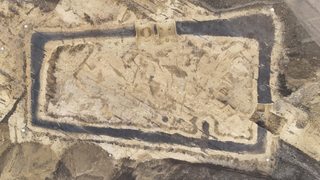
Subterranean tunnel, possibly used for medieval cult rituals, discovered in Stone Age tomb in Germany
By Kristina Killgrove published
A tunnel system discovered in a Stone Age tomb in Germany suggests medieval people created hiding places for their cultic rituals.
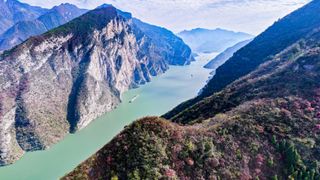
China banned all fishing to save the Yangtze River. This 'nuclear' option appears to be working.
By Chris Simms published
Decades of overfishing and habitat degradation led to huge declines in freshwater biodiversity in China's longest river, but there are signs of recovery after a fishing ban was implemented in 2021.
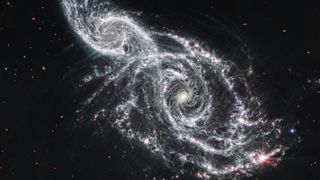
The earliest black holes in the universe may still be with us, surprising study claims
By Paul Sutter published
The earliest black holes in the universe may not have disappeared from Hawking radiation after all, new research hints. Instead, they fed on the energy of the ancient cosmos to grow supermassive.
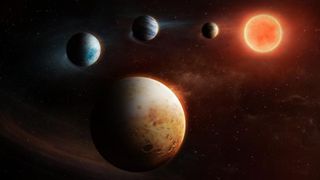
Strange rocky world found lurking on the edge of 'inside out' planetary system
By Skyler Ware published
Astronomers have spotted an unusual 'inside-out' planetary system where a rocky world seems to have formed far beyond the realm typically reserved for gas giants.

Risk of death from pregnancy in the US is 44 times higher than that from abortion, new analysis reveals
By Marianne Guenot published
A figure commonly used to compare the risk of death from pregnancy compared with the risk of death from abortion might be based on outdated data, a new study suggests.

China's emissions are flatlining — and may be falling — in critical turning point for biggest emitter, report says
By Ben Turner published
The carbon emissions of the world's biggest greenhouse gas emitter have plateaued for nearly two years.
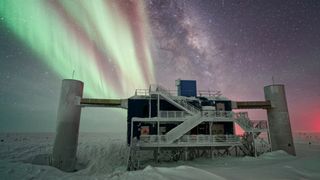
Upgrade to Antarctica 'ghost particle' observatory could pave the way to physics breakthroughs
By Stephanie Pappas published
The National Science Foundation's massive IceCube neutrino detector at the South Pole just got a major new upgrade, which promises to take the search for "ghost particles" to a new level.

'DNA origami' could be key for making an effective HIV vaccine, early study hints
By Zunnash Khan published
A new vaccine design uses folded DNA to steer the immune system toward producing the rare immune cells needed to make protective antibodies against HIV.
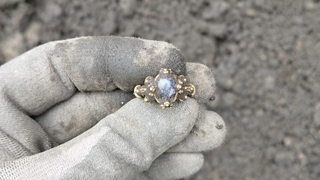
Medieval gold ring with dazzling blue gemstone discovered in Norway is a 'fantastically beautiful and rare specimen'
By Kristina Killgrove published
The delicate gold ring was made sometime in the Middle Ages and may have belonged to a high-status woman.
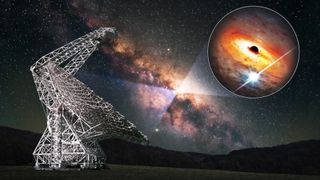
Radio signal discovered at the center of our galaxy could put Einstein's relativity to the test
By Elizabeth Howell published
Scientists hope to probe the nature of general relativity through a possible pulsar found in the center of the Milky Way, near a supermassive black hole.
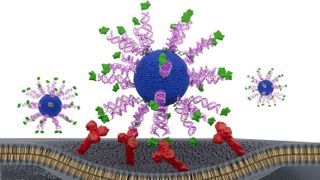
Cancer vaccine shows promise against HPV-related throat tumors in early study
By Clarissa Brincat published
If proven effective in humans, the vaccine could complement standard therapies for HPV-driven cancer, as well as inform the design of therapeutic vaccines for other diseases.
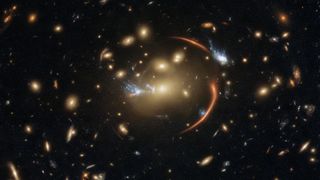
Our leading theory of dark matter may be wrong, huge new gravity study hints
By Paul Sutter published
New research using a space-time phenomenon predicted by Einstein presents evidence that the invisible backbone of the universe may be much "fuzzier" than we realized.
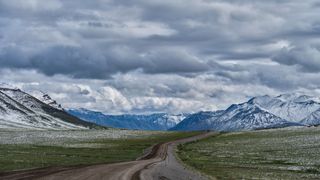
Permafrost thaw and 'shrubification' have tipped Alaska's North Slope into a wildfire regime not seen for 3,000 years
By Sascha Pare published
An analysis of peatland soil samples and satellite images has found that wildfires on Alaska's North Slope are more frequent and severe now than they were at any point over the past 3,000 years.
Get the world’s most fascinating discoveries delivered straight to your inbox.
 Live Science Plus
Live Science Plus











